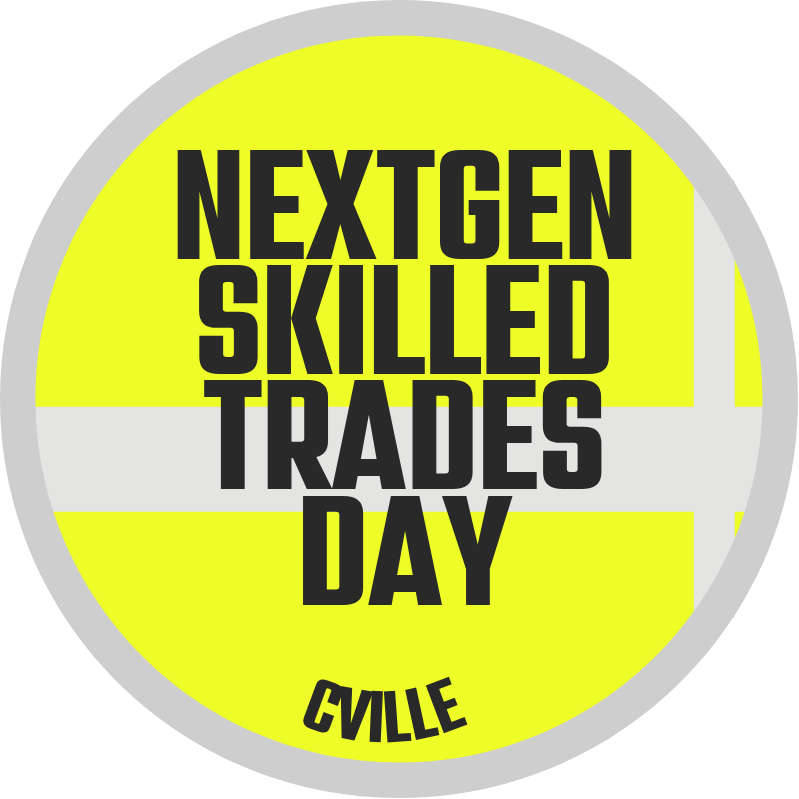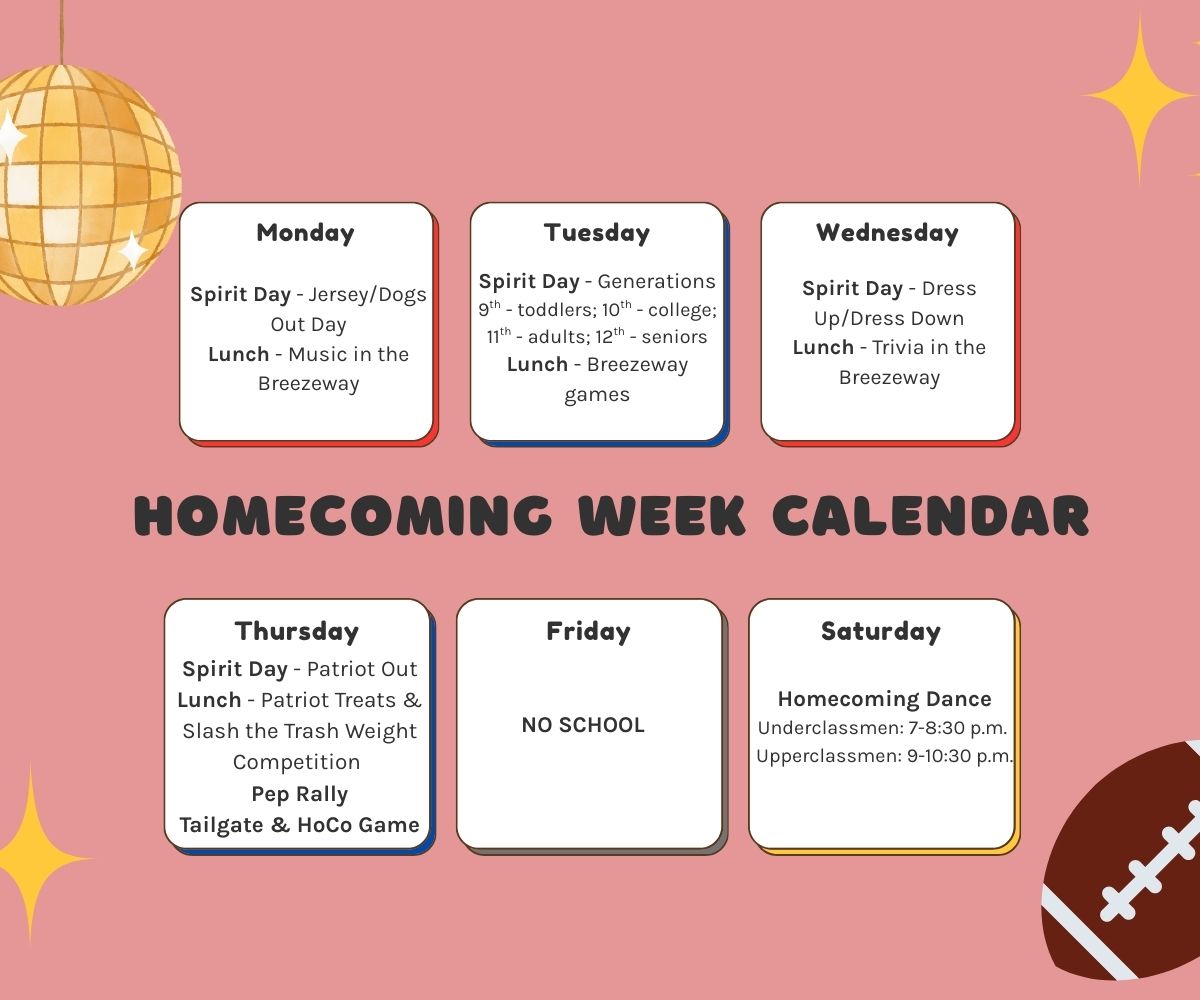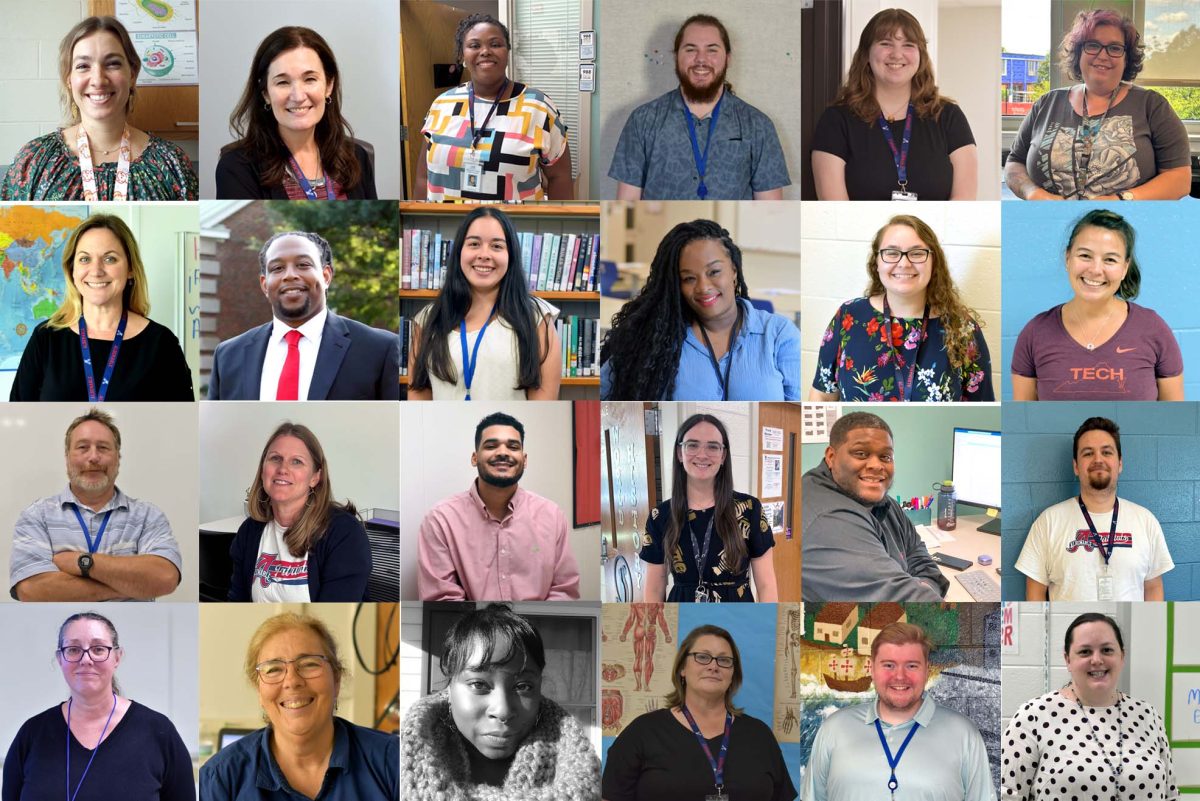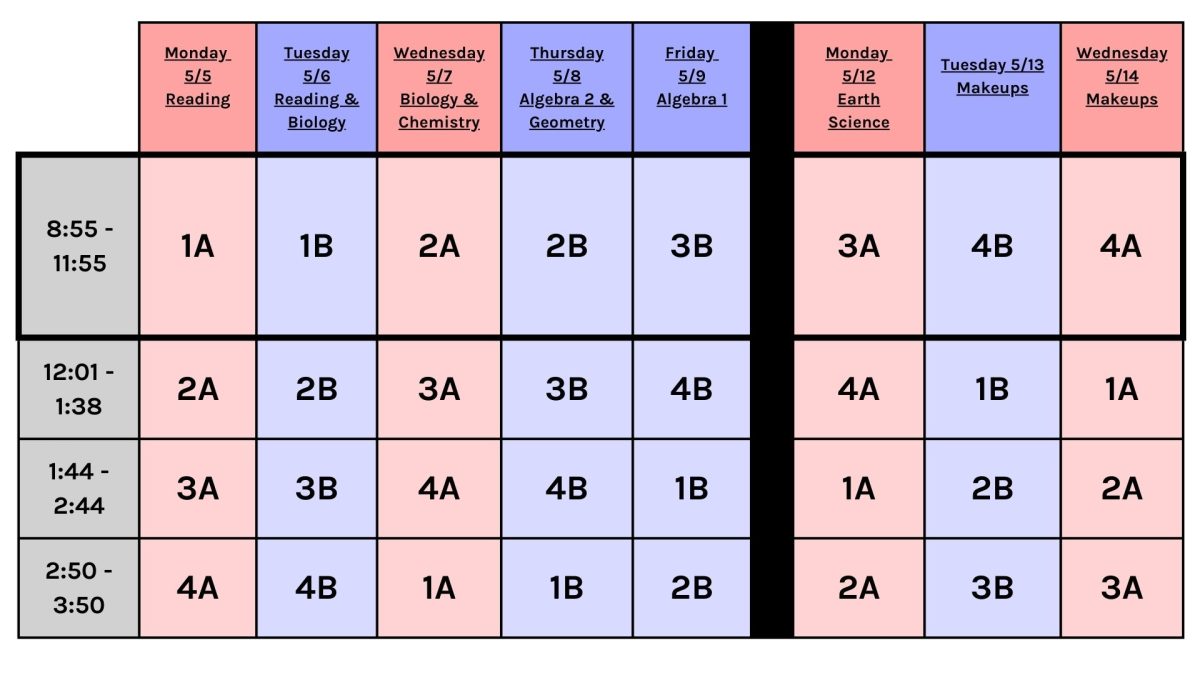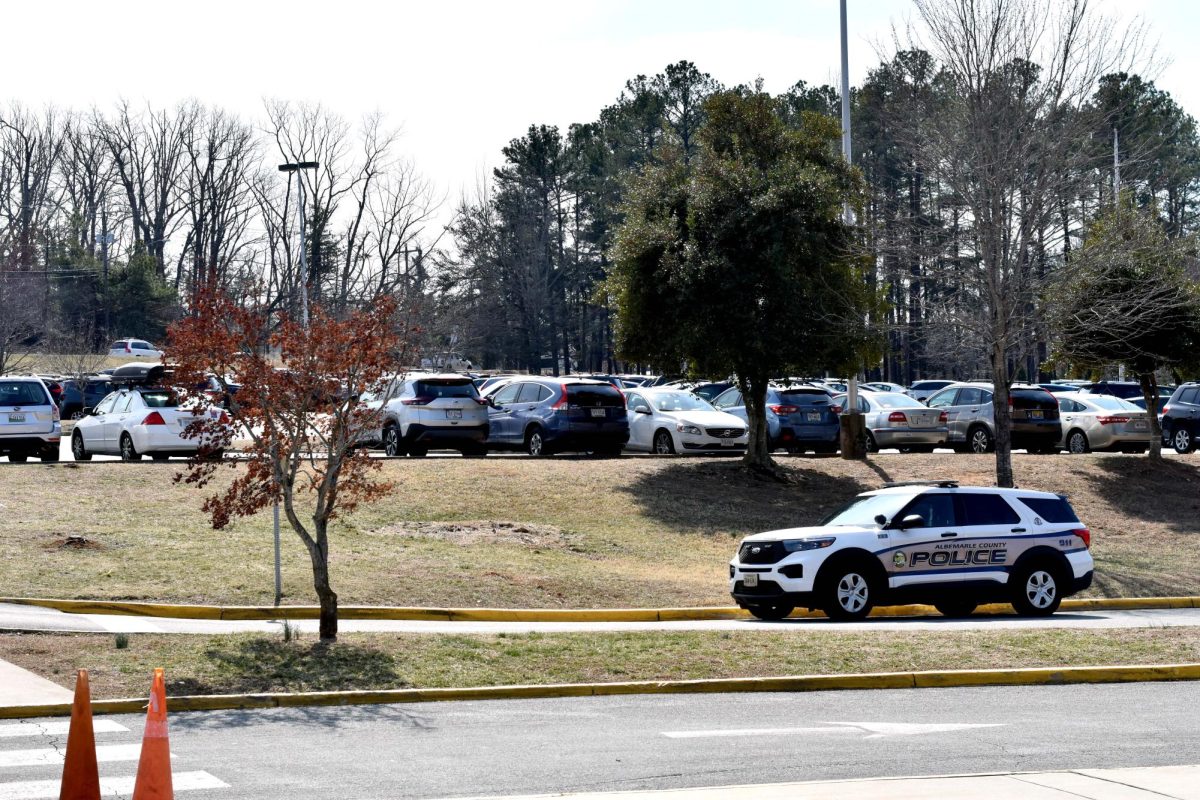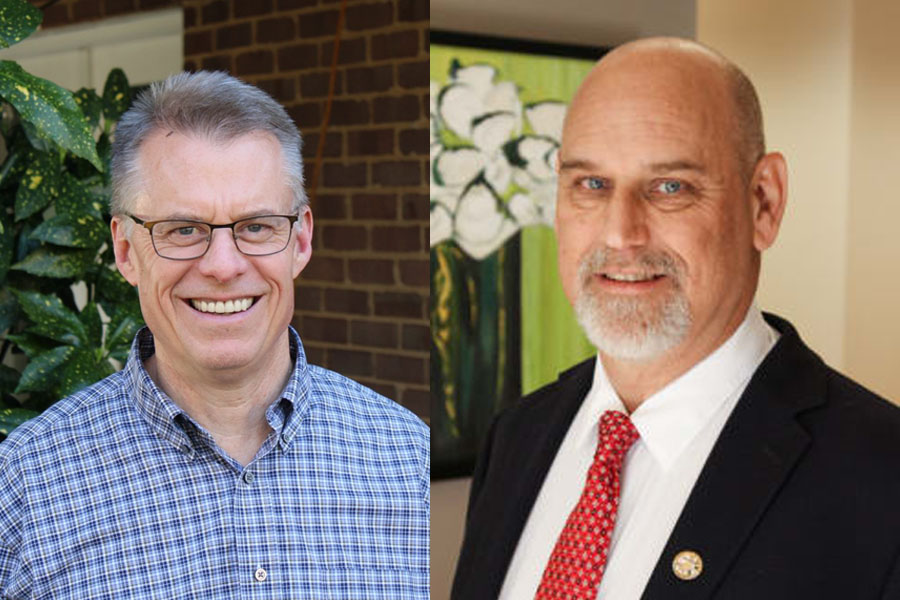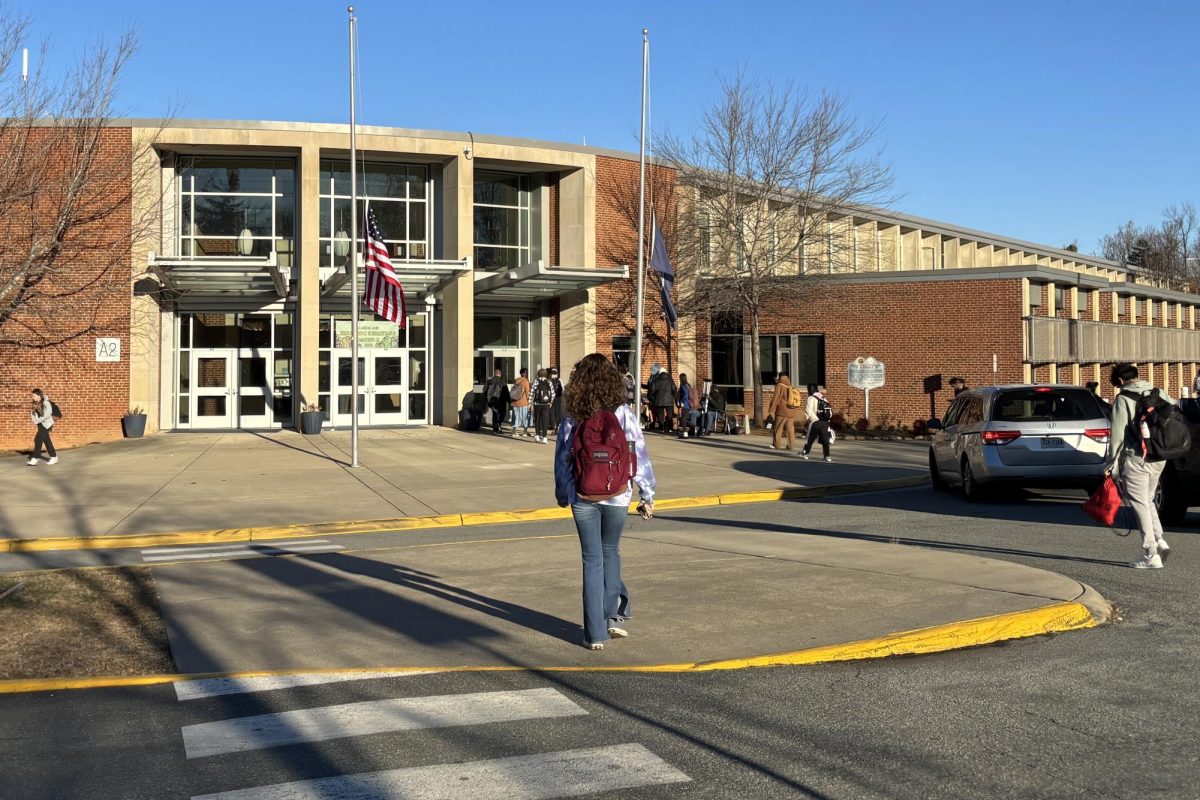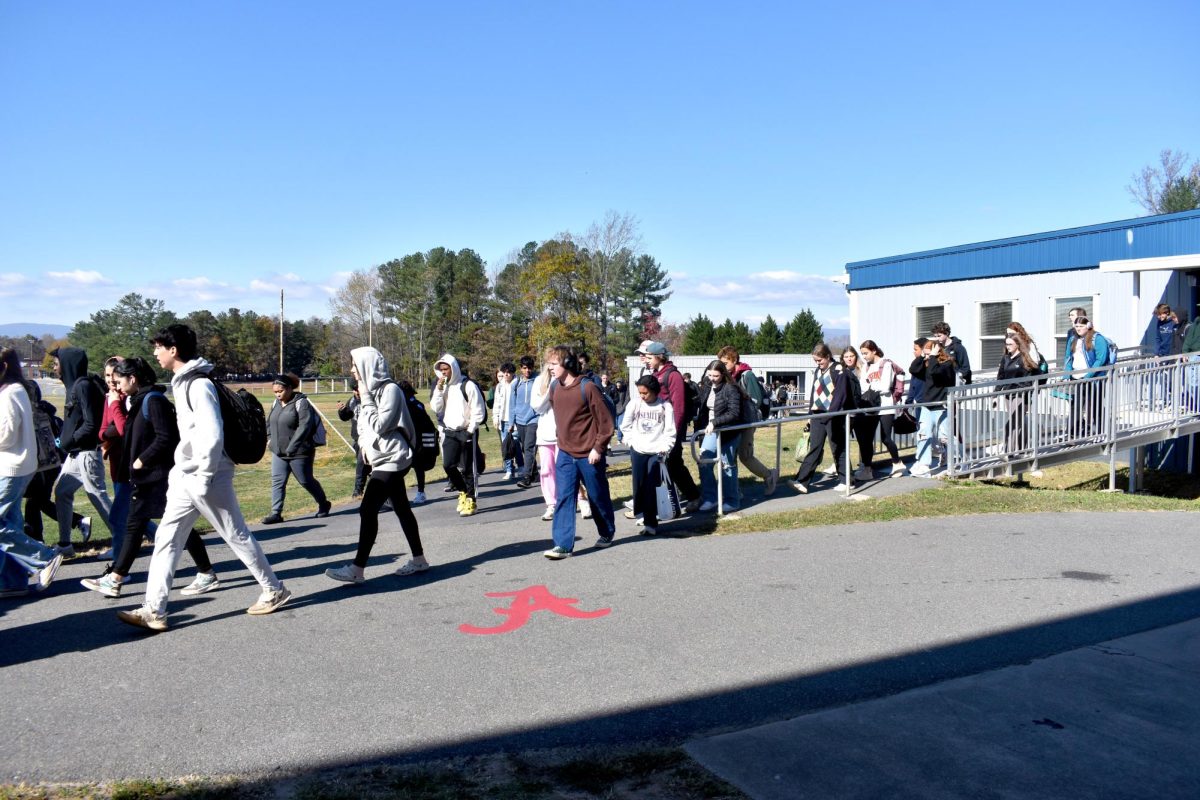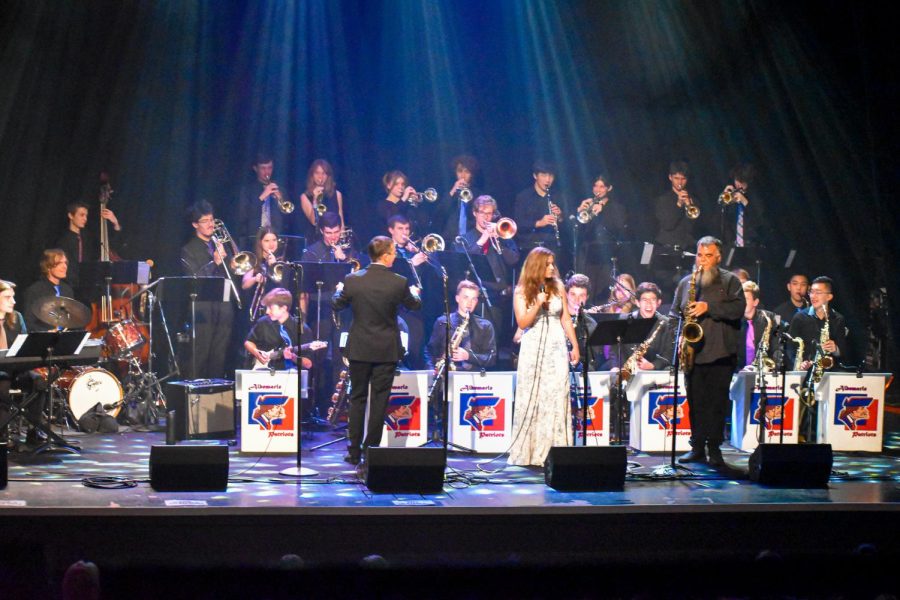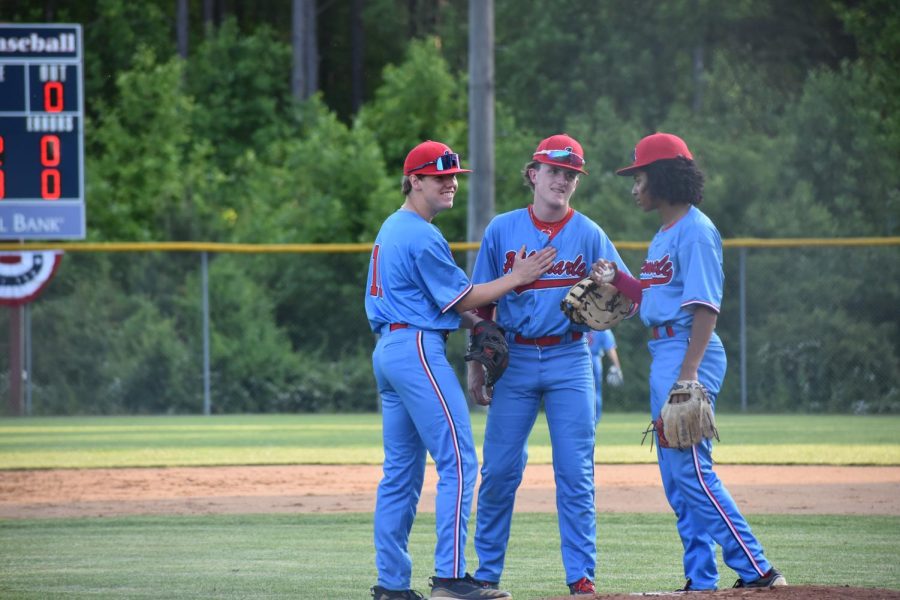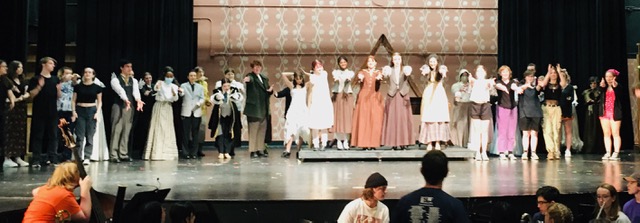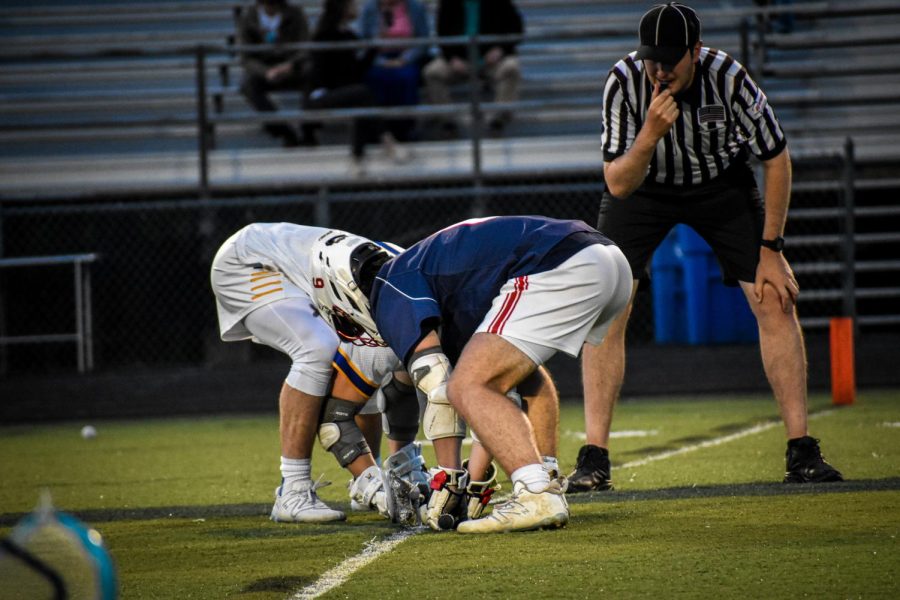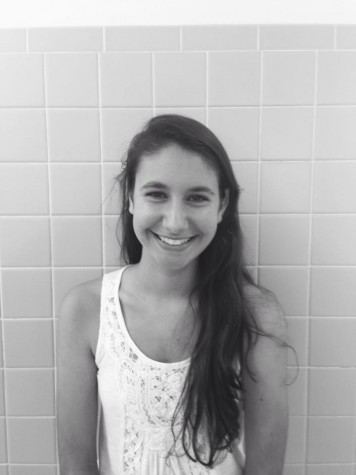This year, the two winners of the Regional Science Fair were Albemarle’s own: seniors Sims Gautam and Sydney Giacalone, who advanced to the International competition in Phoenix, AZ on May 12.
The International Science and Engineering Fair (ISEF) is the world’s largest pre-college science competition, involving over 1,500 students from about 70 different countries that are competing for a share of the $3 million in total prize money. The competition, sponsored by Intel, starts with a Regional competition consisting of 17 different science or math based categories, which Albemarle students have been participating in for years.
On their trip, MESA teacher Jeff Prillaman also joined the students. “Students have to be accompanied by an adult sponsor. But I am also there for moral support — I am one of their biggest cheerleaders,” Prillaman said.
“I have only been doing the science fair for the last four years, but this is the first time Albemarle High School has advanced two projects to the international level,” Prillaman said. While most students choose to enter the Science Fair, juniors in MESA are required to compete.
“So at some level my involvement is simply making students participate. Sydney and Sims were not required to participate in the science fair this year, however, since both of them have been successful in the past they decided to participate again this year,” Prillaman said.
In 2011, Gautam competed at ISEF placing second in the Mathematical Sciences category at the International competition held in Los Angeles. “Second place at ISEF opened doors for me in others things, like getting into the Research Science Institute (RSI),” Gautam said.
RSI is a very selective program (only a two to three percent acceptance rate) held each year at MIT, where Gautam started working on his current Science Fair project, which is based on distributing points on higher dimensional spheres. Besides the guidance he received from an MIT graduate student at RSI and from Prillaman, all of the research and work has come from Gautam.
“I strongly feel that a student’s science fair project should be exactly that — the students’ project,” Prillaman said. “Sydney and Sims success is all due to their hard work and effort, my contribution is negligible. I am like a coach in that I have simply prepared my players for the game.”
Giacalone started working on the research portion of her project last summer, after contacting many UVa Biology professors for research tools. “I got one wonderful reply by a professor who helped me get the [lab] space and materials I needed, and provided expertise when I had questions!” Giacalone said. “I had done similar testing before, but never at this magnitude.”
“My project tested for genetically modified ingredients in locally farmed food and processed foods claiming to be “non-GMO” (non-genetically modified organisms). Multiple products showed that although they claim to be GMO free, they do contain GMOs,” Giacalone said.
“The goal of my project was to show that our current labeling system (one that relies on producers voluntarily labeling their products as non-GMO if they wish to do so, rather than federal or state mandating GMO labeling) is insufficient in guaranteeing the consumer they are eating non-GMO.”
Giacalone and Gautam have expressed a great deal of work and passion in their projects, which Prillaman says are strong and show serious scientific research. “One of the components that pushes their projects to the top are Sydney and Sims’ ability to articulate and present their research,” Prillaman said. For Gautam, his appeal to the mathematical side of science is what really interests him, saying, “I can’t see myself doing research in anything else.”
“There are so many questions in math,” Gautam said. “It is not about whether you solve something, it is how far you got and how you worked off of others’ work.”
Giacalone, whose project is in the Plant Science category, wants to go into Sustainable Agriculture and Food Policy as her future career. “My interest started with a local film festival movie, a bio symposium I attended in GMOs, and many books and groups in Charlottesville that I’ve gotten involved with. I’m known as the crazy local natural food girl,” Giacalone said.
From the advisor’s point of view, Prillaman admires the students’ fascination and drive to continue with the science fair, even though their winning results will not be on their college applications.
“They are both competing in the science fair for intrinsic reasons that speak volumes about the type of student, and more importantly, about the type of person they are,” Prillaman said.
Giacalone has similar feelings about what ISEF means to her. “I’ve learned that the best thing to pursue (in Science Fair, in school, in college, in life) is what you are crazy about, what you can’t shut up about, what gets you fired up. For me, that’s our food policy system. For Sims, it’s math. When you are passionate about something, that’s when you surprise even yourself with how far you can go.”

